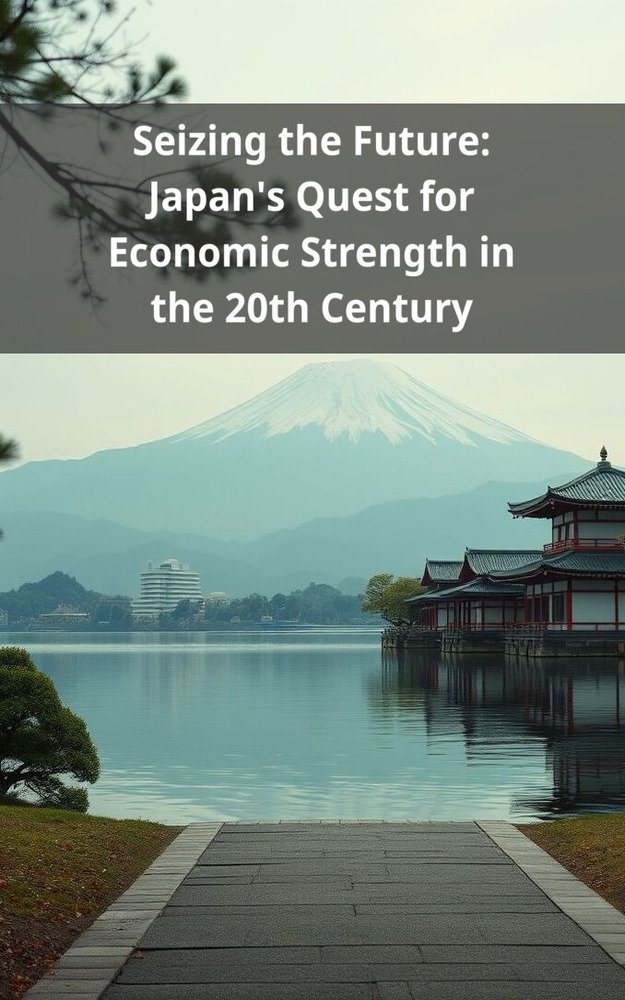Description
In the early 20th century, Japan faced significant economic vulnerabilities, including a scarcity of natural resources and a rapidly growing population. These challenges fueled a sense of urgency to secure access to raw materials and expand its economic influence. The book examines the rise of militarism and expansionism during the 1930s as a manifestation of this quest for economic security, leading to the invasion of Manchuria, China, and ultimately the Pacific War.
The aftermath of World War II brought devastating consequences for Japan’s economy, leaving it in ruins and heavily dependent on foreign aid. However, the nation’s indomitable spirit and resilience paved the way for the “Japanese Miracle,” a period of rapid economic growth and industrialization. This remarkable transformation was driven by a combination of factors, including land reform, technological advancements, and a surge in exports.
The book also analyzes the challenges Japan faced in the latter half of the 20th century, such as the global energy crisis of the 1970s and the bursting of the asset price bubble in the 1990s. Despite these setbacks, Japan remained a major economic power, transitioning to a knowledge-based economy and becoming a leader in fields such as robotics, electronics, and automotive manufacturing.
In the 21st century, Japan’s economic trajectory has been shaped by a complex interplay of domestic and global factors. The aging population, changing demographics, and the rise of China as an economic superpower have presented both opportunities and challenges. The book examines Japan’s response to these developments, including the implementation of economic policies such as Abenomics, aimed at stimulating growth and addressing the nation’s long-standing economic issues.
Throughout its economic journey, Japan’s relationship with the United States has played a pivotal role. The book explores the close economic partnership between the two nations, characterized by significant trade and investment flows. However, it also acknowledges the strains caused by trade disputes and differing perspectives on economic issues.
Japan’s economic engagement with China, the world’s second-largest economy, is another defining feature of its recent economic history. The book analyzes the complex relationship between the two countries, marked by both cooperation and competition. It highlights the challenges and opportunities Japan faces in navigating this relationship and adapting to the shifting global economic landscape.
**Seizing the Future: Japan’s Quest for Economic Strength in the 20th Century** offers a comprehensive and insightful analysis of Japan’s economic history, providing valuable perspectives for understanding the nation’s economic policies, challenges, and future prospects.
If you like this book, write a review!
Language : English
Dimensions : 6 x 9 inches
Pages : 186 pages
Pasquale De Marco stands as a prolific author whose literary prowess knows no bounds. With a passion for storytelling that transcends genres, he has made a name for himself as a versatile writer with the extraordinary ability to captivate readers across diverse literary landscapes. His journey as an author is marked by an insatiable curiosity, a love for the written word, and a relentless commitment to sharing knowledge and experiences with the world.
Pasquale De Marco collaborates with a dedicated team of ghostreaders who assist him in evaluating and editing the manuscripts. His collaborators are not only skilled professionals but also avid readers who purchase and read books as a personal hobby. This unique blend of creativity allows Pasquale to push the boundaries of traditional publishing, making literature more accessible and diverse.






Reviews
There are no reviews yet